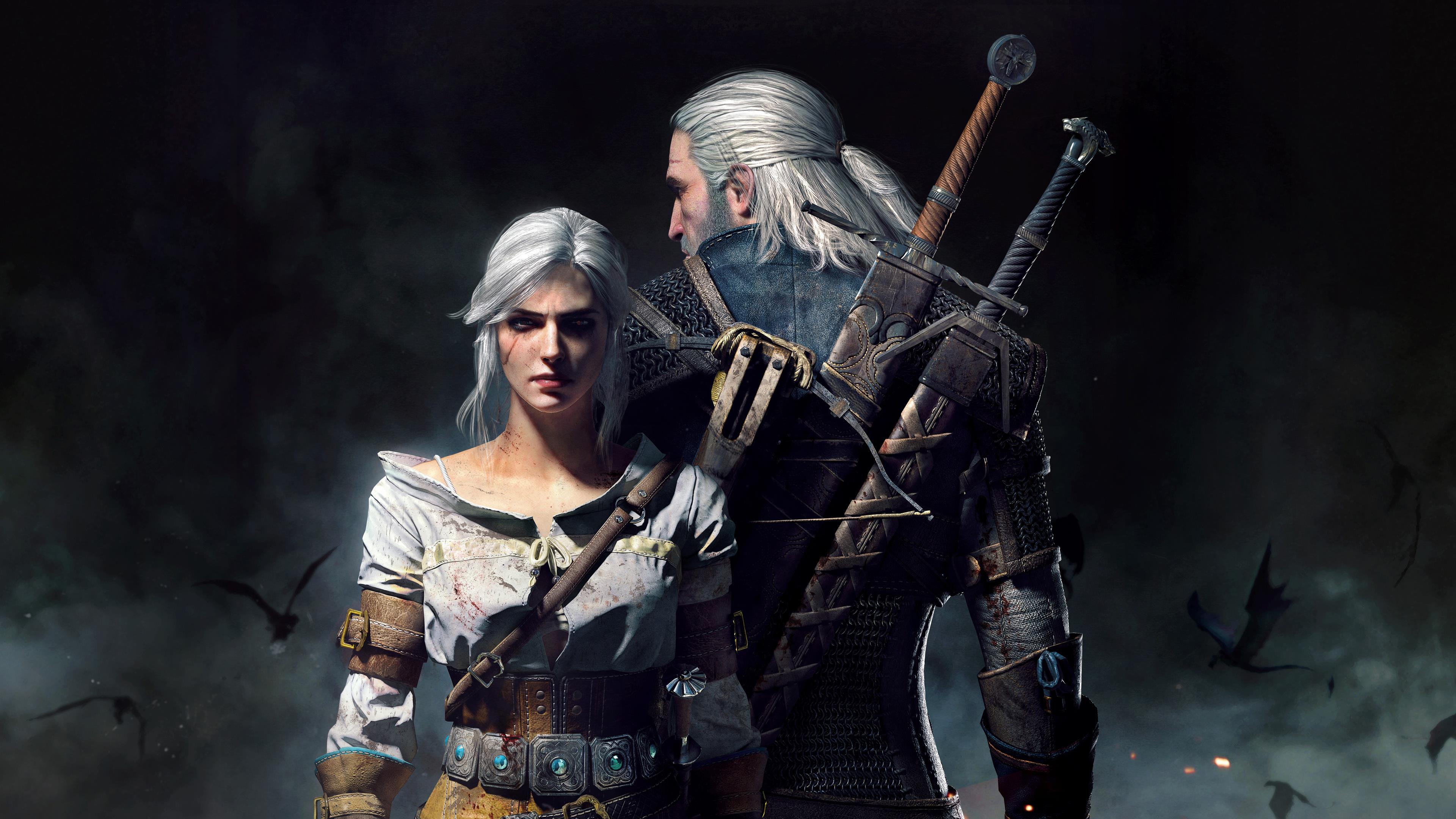CD Projekt says new Unreal Engine 5 Witcher game won't be 'exclusive to one storefront'
It's a major change for the studio, which has previously used its own REDengine on everything from Witcher 2 to Cyberpunk 2077.

Keep up to date with the most important stories and the best deals, as picked by the PC Gamer team.
You are now subscribed
Your newsletter sign-up was successful
Want to add more newsletters?

Every Friday
GamesRadar+
Your weekly update on everything you could ever want to know about the games you already love, games we know you're going to love in the near future, and tales from the communities that surround them.

Every Thursday
GTA 6 O'clock
Our special GTA 6 newsletter, with breaking news, insider info, and rumor analysis from the award-winning GTA 6 O'clock experts.

Every Friday
Knowledge
From the creators of Edge: A weekly videogame industry newsletter with analysis from expert writers, guidance from professionals, and insight into what's on the horizon.

Every Thursday
The Setup
Hardware nerds unite, sign up to our free tech newsletter for a weekly digest of the hottest new tech, the latest gadgets on the test bench, and much more.

Every Wednesday
Switch 2 Spotlight
Sign up to our new Switch 2 newsletter, where we bring you the latest talking points on Nintendo's new console each week, bring you up to date on the news, and recommend what games to play.

Every Saturday
The Watchlist
Subscribe for a weekly digest of the movie and TV news that matters, direct to your inbox. From first-look trailers, interviews, reviews and explainers, we've got you covered.

Once a month
SFX
Get sneak previews, exclusive competitions and details of special events each month!
The biggest surprise of today's Witcher 4 announcement (that's just what we're calling it until it has a title) is not that it's happening—of course it's happening—but that CD Projekt is switching from its in-house developed REDengine to Unreal Engine 5. REDengine, in various iterations, was used in The Witcher 2, The Witcher 3, and Cyberpunk 2077, but its time is clearly up: CD Projekt said in the announcement that the switch to a new engine signals the start of "a multi-year strategic partnership with Epic Games."
"[The partnership] covers not only licensing, but technical development of Unreal Engine 5, as well as potential future versions of Unreal Engine, where relevant," CD Projekt said. "We'll closely collaborate with Epic Games’ developers with the primary goal being to help tailor the engine for open-world experiences."
Cyberpunk 2077's many technical issues are the most immediately obvious probable reason for the switch to new technology—and don't forget that The Witcher 3 wasn't exactly in pristine condition at launch either. Moving to a more well-rounded, widely-used game engine could make for a smoother experience for players right out of the gate.
More importantly, though, the new technology will hopefully make life a little easier for CD Projekt developers. "One of the core aspects of our internal Red 2.0 Transformation is a much stronger focus on technology, and our cooperation with Epic Games is based on this principle," CD Projekt Red chief technical officer Paweł Zawodny said in a statement.
Red 2.0 is a long-term development strategy announced in March 2021 that's intended to enable "parallel development" of multiple projects at CD Projekt, rather than the one-at-a-time approach it's taken until now. As part of the process of enabling that change, studio head Adam Badowski said management wanted to "emphasize the well-being of our employees and provide them with professional and personal development opportunities."
That part of the strategy shift was especially noteworthy because of long-standing issues with crunch at CD Projekt. Complaints first came to mainstream light in 2017, a couple years after the release of The Witcher 3; at the time, Badowski and CD Projekt co-founder Marcin Iwinski were largely dismissive of the problem, and implied that crunch was just how good things got done.
"This approach to making games is not for everyone. It often requires a conscious effort to 'reinvent the wheel'—even if you personally think it already works like a charm," they said at the time. "But you know what? We believe reinventing the wheel every friggin' time is what makes a better game."
Keep up to date with the most important stories and the best deals, as picked by the PC Gamer team.
Attitudes seemed to soften somewhat, as the studio promised "more humane" and "non-obligatory" crunch for Cyberpunk 2077. But the situation changed after a delay in late 2019: Crunch was made mandatory, and CD Projekt management did not appear to consider the backtrack a big deal.
Switching to Unreal Engine is pretty much a complete reversal of the "reinventing the wheel" attitude, as the studio won't be required to sink time and resources into upgrading and maintaining its engine: Essentially, that will be Epic's problem.
"In the past, we spent a lot of resources and energy to evolve and adapt REDengine with every subsequent game release," Zawodny said. "This cooperation is so exciting, because it will elevate development predictability and efficiency, while simultaneously granting us access to cutting-edge game development tools."
It's not exactly a trend at this point, but CD Projekt isn't the first big studio to decide that an internally-developed game engine is more of a pain in the ass than its worth. After struggling with a mandate to use the DICE-developed Frostbite engine in Dragon Age, Mass Effect, and Anthem, It now looks like BioWare will use Unreal Engine 5 for the next Mass Effect game.
While the Witcher is moving to new technology, CD Projekt confirmed that REDengine will continue to be used to develop the upcoming Cyberpunk 2077 expansion (although that's a given, as it doesn't make any sense to remake Cyberpunk 2077 in a new engine for the sake of some DLC). And for anyone especially picky about which website they purchase their games from, the developer also said that despite the switch to Unreal Engine 5 and partnership with Epic Games, it does not plan to make the next Witcher game exclusive to any storefront
In the past, CD Projekt games have released on GOG (its own, DRM-free store) and Steam. An Epic Games Store release was added for Cyberpunk 2077. The next Witcher game will likely hit the same stores whenever it's out, although CD Projekt didn't technically commit to specific stores. Beyond the engine, though, there's very little information on the game, including when it might be out or who might be in it—but the image included in the announcement points to a whole new school of Witchers, strongly suggesting that Geralt won't be back.
We are not planning on making the game exclusive to one storefront.March 21, 2022

Andy has been gaming on PCs from the very beginning, starting as a youngster with text adventures and primitive action games on a cassette-based TRS80. From there he graduated to the glory days of Sierra Online adventures and Microprose sims, ran a local BBS, learned how to build PCs, and developed a longstanding love of RPGs, immersive sims, and shooters. He began writing videogame news in 2007 for The Escapist and somehow managed to avoid getting fired until 2014, when he joined the storied ranks of PC Gamer. He covers all aspects of the industry, from new game announcements and patch notes to legal disputes, Twitch beefs, esports, and Henry Cavill. Lots of Henry Cavill.

